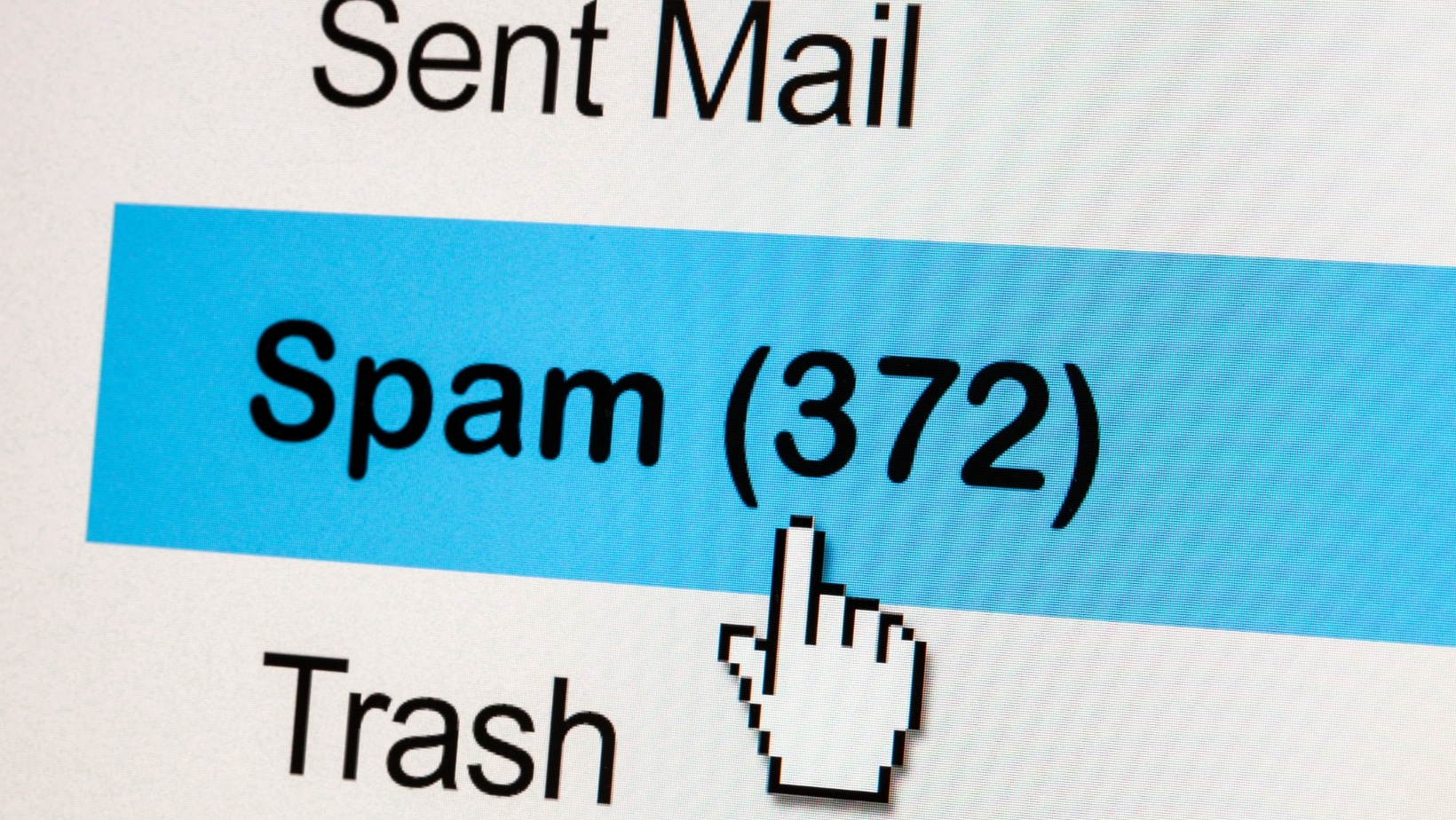Words: Belinda Connolly
Hands up if you’ve noticed more spam than usual hitting your inbox? Yes, us too. Despite all the filters and blockers designed to keep inboxes safe from spammers and phishers, and regardless of which domain you use, spam still flows like a tsunami. In fact, with more than 160 billion spam emails being sent every single day, it’s little wonder you’re being plied with these annoying messages.
Making sure your email marketing game is strong is important, but if you’re running foul of laws and email best practices then you may find your cleverly crafted message is being sent to an email address in no-man’s land.
Gmail claims that it already stops 99.9% of spam, phishing and malware from ever reaching inboxes. Despite this, a new email attack is wreaking havoc in inboxes everywhere: spoofing, where the ‘From’ address is faked, making the email appear that it’s from a trusted source instead of a bad actor.
With spam emails continuing to invade like cockroaches, Yahoo and Gmail, two of the most popular email domains globally, are introducing important changes in February 2024 that may impact the way you send emails to your subscribers.
So, what are the new changes coming to email marketing and how will they impact your digital marketing activities? Read on to learn more.
The new Yahoo and Gmail changes you need to know
Gmail, the largest email domain globally, and Yahoo, have announced new measures from February 1, for bulk senders (defined as anyone who sends more than 5,000 emails a day). These measures are:
- Requiring bulk senders to authenticate their email domain.
- Any marketing emails must have a one-click unsubscribe option. When someone unsubscribes, you must honour that request within two business days.
- Ensuring that your business maintains a spam complaint rate of less than 0.3%.
- Having a valid forward and reverse DNS (domain name system) record for your sending IPs. A DNS is a best practice protocol for exchanging data on the internet.
What do these email updates mean for my business?
Google, the owner of Gmail, advises all users to undertake best practice when it comes to email marketing. They recommend:
- Setting up DKIM (DomainKeys Identified Mail), an email security standard, to guard against spoofing as well as avoiding having your outgoing emails marked as spam.
Yahoo recommends:
- Publishing a valid DMARC (Domain-based Message Authentication, Reporting and Conformance) policy.
- Including a “rua” tag, which is properly set up to receive reports, to allow monitoring during initial setup.
- Ensuring the domain in the From: header is aligned with either the SPF domain or the DKIM domain. This is required for DMARC alignment.
- Publish valid SPF (Sender Policy Framework) records, which allow a sender to specify the list of IPs which are allowed to send mail for that domain.
Yahoo also advises against purchasing mailing lists, and frankly so do we. You can read more about Yahoo email best practice here.
What every business needs to know about sending emails
The introduction of these changes is a good time to soak up a refresher on Australian laws and regulations regarding email marketing under the Spam Act 2003. Key standouts include:
- Consent: must be obtained before sending commercial emails. Can be either express (directly given by the recipient) or inferred through an existing business relationship.
- Identification: senders must clearly identify themselves and their contact details in the message.
- Unsubscribe option: all commercial messages must contain a functional and easy-to-find unsubscribe option, and the unsubscribe request must be honoured within five working days.
- No harvesting or address-harvesting software: address-harvesting software, the lists produced, and software that collects email addresses without consent are prohibited.
- Accurate information: information in the email, including subject line, must accurately represent the content of the message.
- Record-keeping: businesses should keep records of consent, including how and when it was obtained, to prove compliance with the Act in case of complaints.
- Privacy Act 1988: governs how email addresses are collected, used and stored.
- GDPR compliance: For Australian businesses that market to people in the European Union, compliance with the EU General Data Protection Regulation (GDPR) is also required.
Stay on the right side of email rules
If you adhere to the recommendations and regulations, and follow best practice, you should not be penalised. If anything, you may even witness an improvement in open rates as recipients’ inboxes should be free of spammy emails.
The Bubble Co. already recommends including easy, one-click unsubscribe options in email communications as well as ensuring sender contact details are accurate and up to date. This best practice will soon be the standard, which means every email user will benefit.
TL;DR… what? We’ve got you! We keep up with all the changes in the email marketing space so you don’t have to. Get in touch to find out how we can help with your digital marketing.




